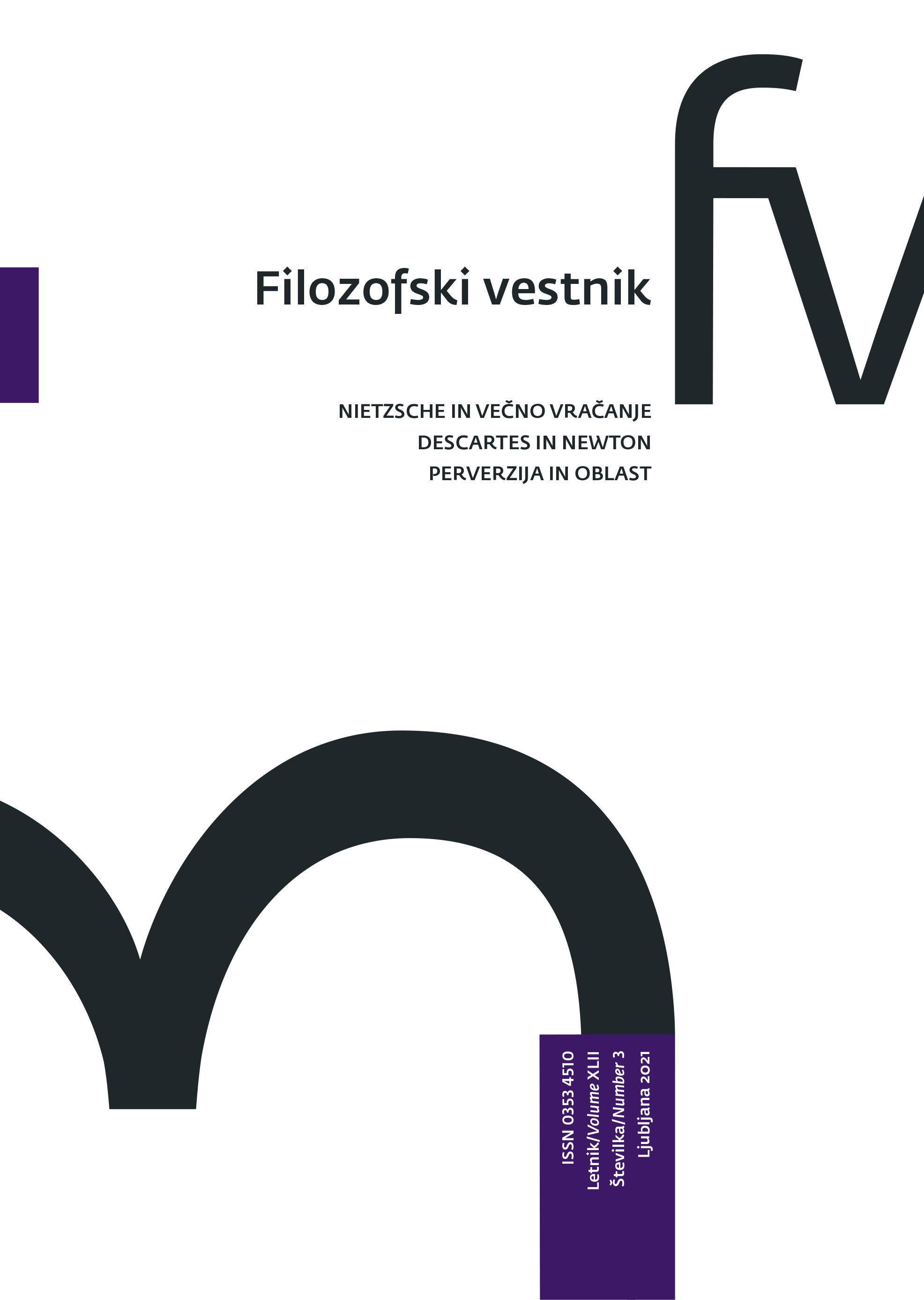Konec pandemije in sadizem normalizacije
DOI:
https://doi.org/10.3986/fv.42.3.11Ključne besede:
covid-19, pandemija, endemija, virus, konec, sadizem, cepljenje, svoboda, antropocenPovzetek
Prispevek obravnava strukturno dinamiko pandemije covid-19 in jo opredeli kot bistveno končno krizo. Ta definicija pa ne implicira abstraktne nujnosti, da se pandemija v nekem trenutku konča, temveč prej dejstvo, da je ideja konca določila celoten potek pandemije. Od samega začetka je ta ideja nastopila v dveh nasprotujočih si oblikah: v prvi perspektivi je pandemijo končati le z eliminacijo vira vdora; v drugi perspektivi konec pandemije označuje trenutek, ko družba najde način, da se na ta vdor prilagodi. Poleg analize »objektivne« evolucije pandemije v njenih različnih fazah članek prikaže inherentno sadistično strukturo prevladujočega družbenega odziva. Prav ker je ta odziv meril na dosego nemogoče totalne normalizacije, je pripravil teren, kjer pandemije potencialno mutira v pristno krizo antropocena, endemijo pandemije.
Prenosi
Literatura
»André Comte-Sponville: ‘Le vaccin est bon pour la santé, le passe mauvais pour la liberté’«, L’Express, 3. september 2021, https://www.lexpress.fr/actualite/idees-etdebats/andre-comte-sponville-le-vaccin-est-bon-pour-la-sante-le-passe-sanitairemauvais-pour-la-liberte_2157696.html.
»André Comte-Sponville: ‘Le sort des jeunes au temps du Covid-19, j’en pleurerais’«, France Inter, 24. september 2021, https://www.franceinter.fr/vie-quotidienne/andrecomte-sponville-le-sort-des-jeunes-au-temps-du-covid-19-j-en-pleurerais.
Agamben, Giorgio, Where Are We Now? The Epidemic as Politics, London, Eris, 2021, EPUB.
Angus, Ian, Facing the Anthropocene, New York, Monthly Review Press, 2016.
Dupuy, Jean-Pierre, La catastrophe ou la vie. Pensées par temps de pandémie, Pariz, Seuil, 2021.
Holmes, Edward C., »Novel 2019 coronavirus genome«, https://virological.org/t/novel-2019-coronavirus-genome/319.
Marcus, Ruth, »Doctors should be allowed to give priority to vaccinated patients when resources are scarce«, Washington Post, 3. september 2021, https://www.washingtonpost.com/opinions/2021/09/03/doctors-should-be-allowed-give-priority-vaccinatedpatients-when-resources-are-scarce/.
Oliu-Barton, Miquel et. al., »SARS-CoV-2 elimination, not mitigation, creates best outcomes for health, the economy, and civil liberties«, The Lancet, 397 (10291/2021), str. 2234–2236, https://www.thelancet.com/journals/lancet/article/PIIS0140-6736(21)00978-8/fulltext.
Rockström, Johan et al., »A safe operating space for humanity«, Nature, 461 (2009), str. 472–475, https://www.nature.com/articles/461472a.
Titheradge, Noel, Kirkland, Faye, »Coronavirus: Did ‘herd immunity’ change the course of the outbreak?«, BBC, 20. julij 2020, https://www.bbc.com/news/uk-53433824.
Troha, Tadej, »Označevalci pandemije: sorazmernost, eksponentnost, prekuženost«, Problemi, 58 (3-4/2020), str. 109–127.
Troha, Tadej, »Objektivnost v krizi«, Filozofski vestnik, 41 (3/2020), str. 209–224, DOI: 10.3986/FV.41.3.06.
Prenosi
Objavljeno
Verzije
- 2022-04-06 (2)
- 2021-12-31 (1)
Kako citirati
Številka
Rubrike
Licenca
Avtorji jamčijo, da je delo njihova avtorska stvaritev, da v njem niso kršene avtorske pravice tretjih oseb ali kake druge pravice. V primeru zahtevkov tretjih oseb se avtorji zavezujejo, da bodo varovali interese založnika ter da bodo povrnili morebitno škodo.
Podrobneje v rubriki: Prispevki





